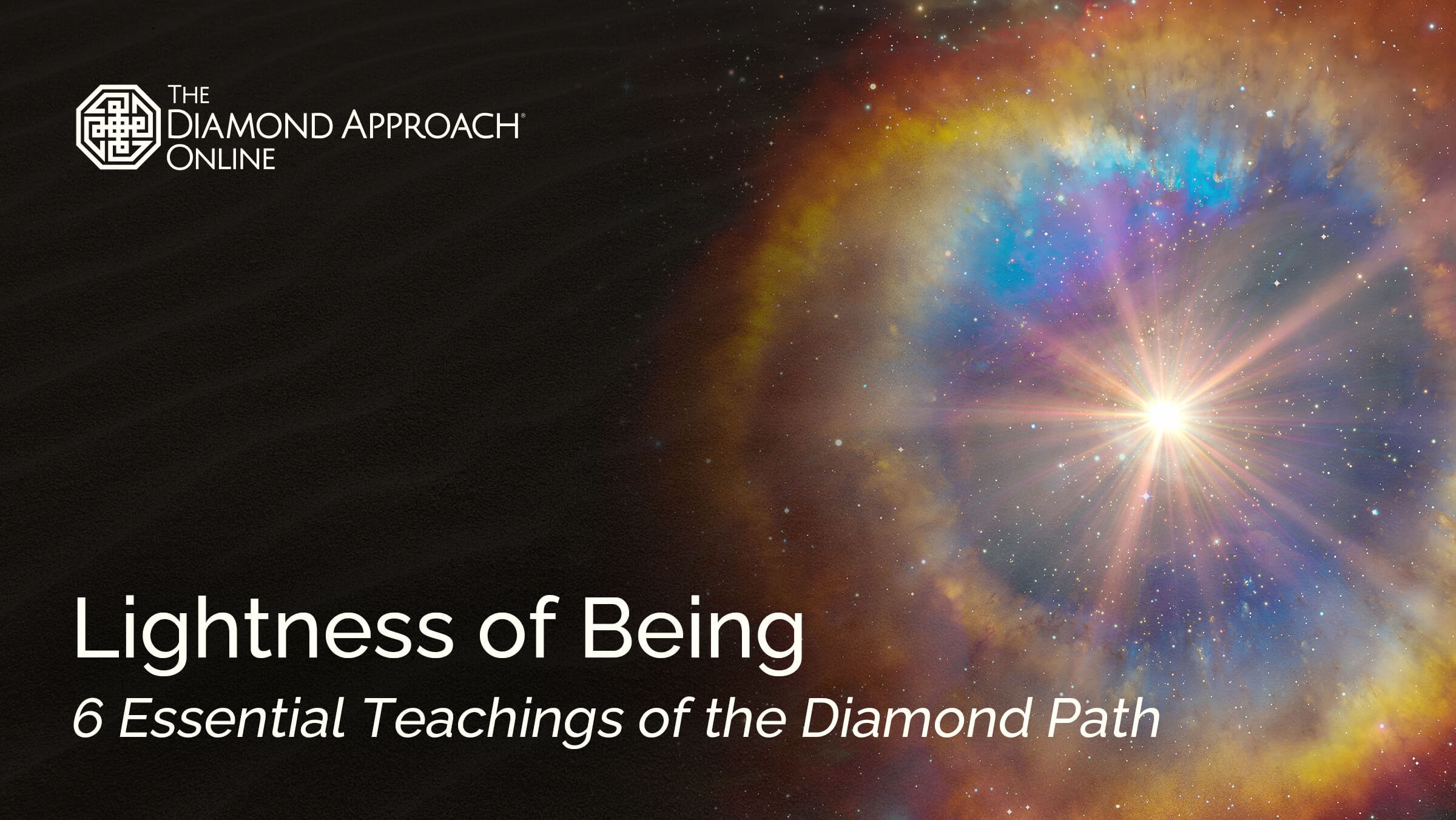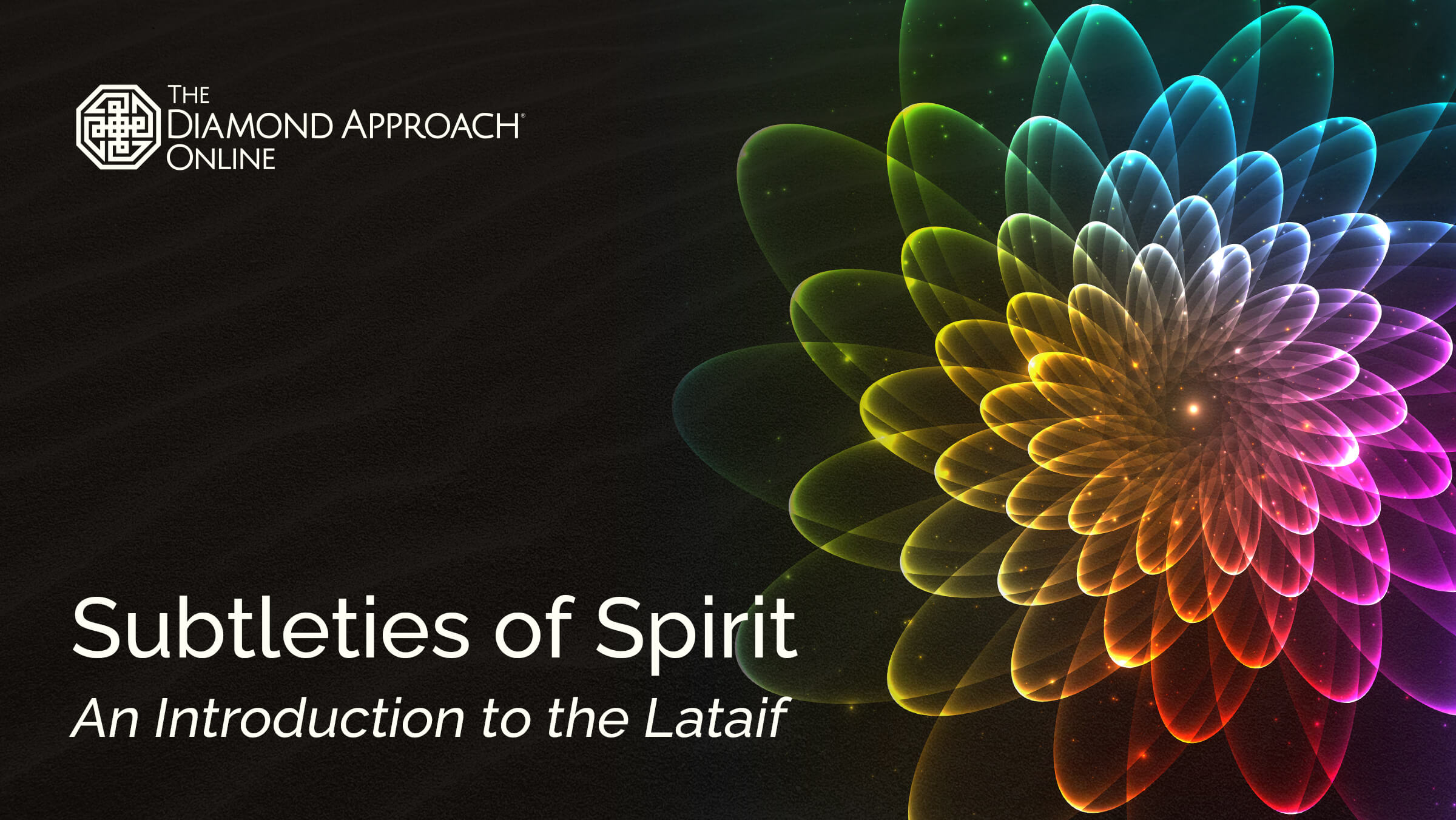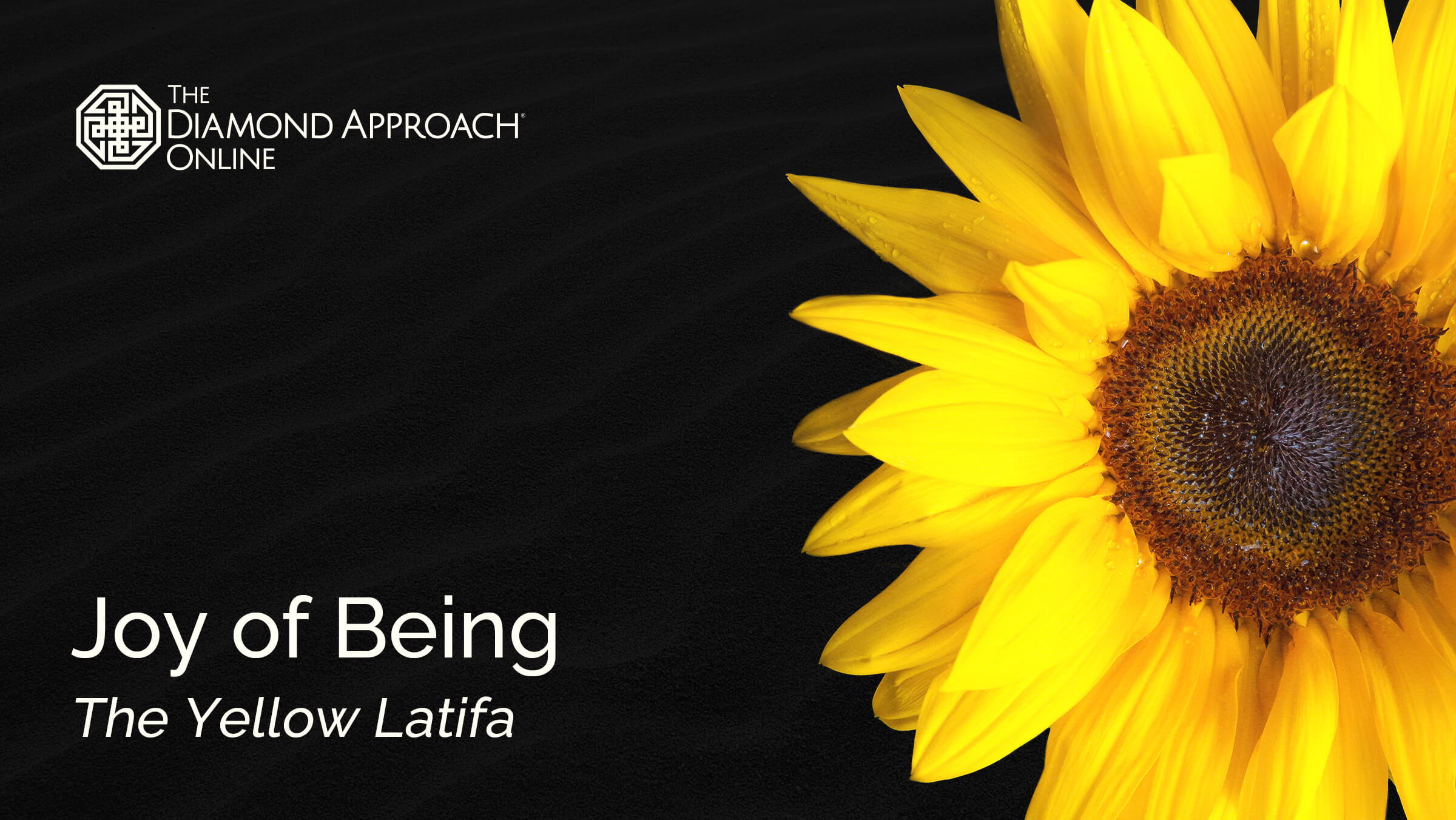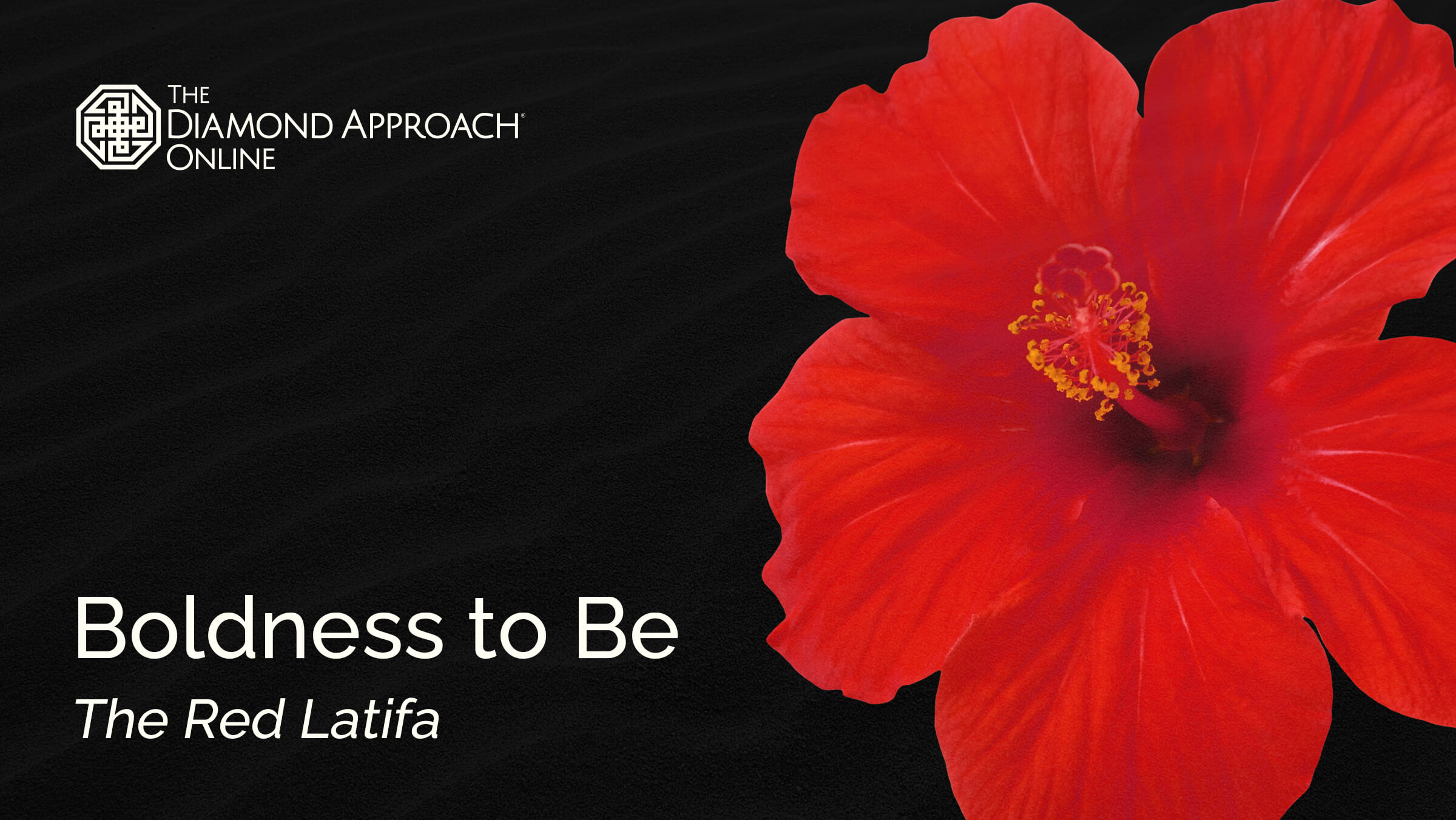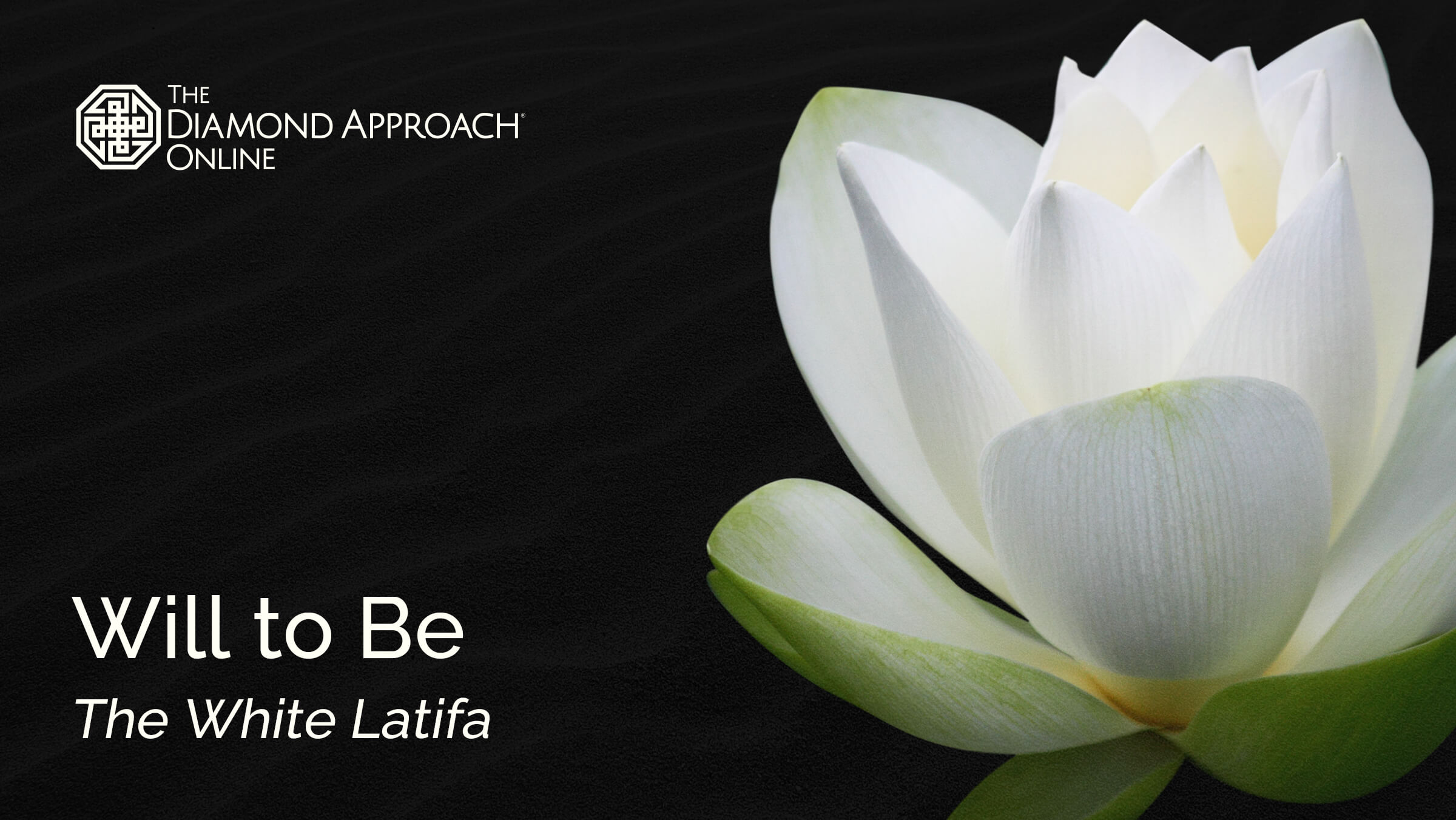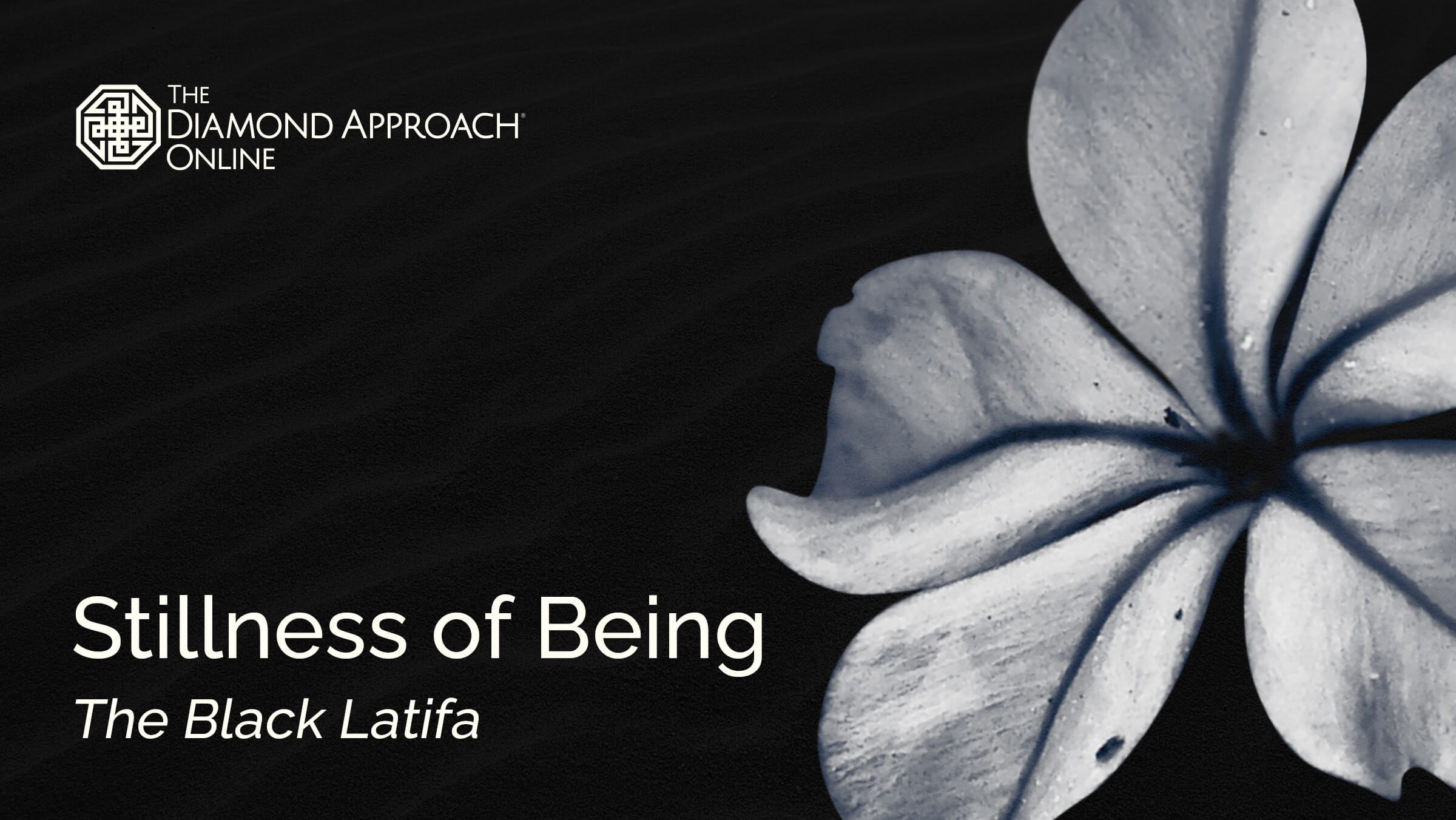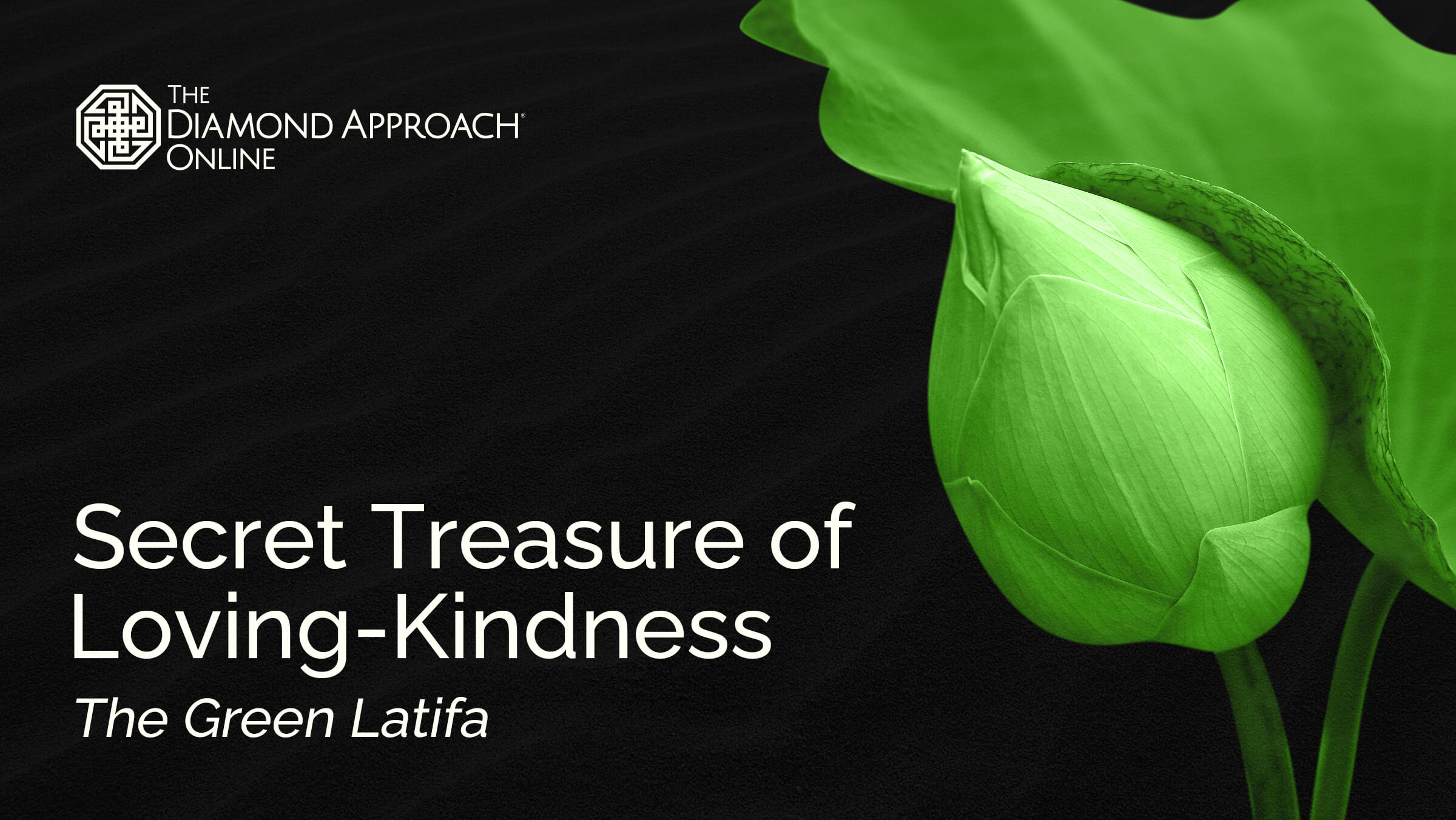
Lightness of Being
Will to Be:
The White Latifa
Recording Only.
This event took place on May 29 & 30.
Experiencing True Freedom
What most of us think of as our free will is actually a way of controlling—or trying to control—what is going to happen. It is what society thinks of as “iron will” or “willpower,” believing only we as separate human selves have the power to effect change and progress.
But in fact, the conventional sense of free will is outwardly directed and ignores the larger universal will. We never ask, “Why do I want this or that result?” And wanting one thing or the other to happen can often be contrary to the natural flow of reality.
The way the Diamond Approach sees will is very different: as something that is aligned with the harmonious unfoldment of reality. When we are in that alignment, our actions don’t merely feel free; they are free.
When we are not aligned, our conventional idea of free will is still operating through our old psychological filters, simply repeating the patterns and strategies we developed as children to exert our freedom. In that way, it actually limits our options. Instead, true will begins with an openness to what arises, and invites us to choose actions that are effective and appropriate for our natural unfoldment.
Initially, though, it can feel as though surrendering our conventional idea of will is collapsing or giving up, submitting to the will of another, and robbing us of our agency.
Working with the white latifa can also bring up early experiences in which we felt forced into certain shapes or into obedience to someone else’s view. This can stir up the sense of helplessness we felt in those circumstances. But if we can be with the helplessness, it can reveal that our discomfort and resistance to it is what created the reactions at the core of our conventional “free will.” And we can finally move beyond them.
“We don't need to control because we can trust reality. And the support of reality itself supports our true will…
so we can relax that tense way of trying to control what's happening.”- Christof Bosch, Diamond Approach Teacher
In the “ Normal 0 false false false EN-US JA AR-SA /* Style Definitions */ table.MsoNormalTable {mso-style-name:"Table Normal"; mso-tstyle-rowband-size:0; mso-tstyle-colband-size:0; mso-style-noshow:yes; mso-style-priority:99; mso-style-parent:""; mso-padding-alt:0in 5.4pt 0in 5.4pt; mso-para-margin:0in; line-height:115%; mso-pagination:widow-orphan; font-size:11.0pt; font-family:"Arial",sans-serif; mso-ansi-language:EN;} Will to Be” We Will Learn That...
Our need to control through our will is based on our early reactions to helplessness
Challenging our old assumptions about will can bring us closer to the actual, pure quality of true will
Coming closer to this quality by letting go of our conventional sense of will can open us to infinite possibilities for real freedom, agency, and right action in the world
There is no need to control situations when we can trust reality
What You’ll Receive When You Enroll...
A recording of the online workshop including teachings, guided meditations, and interactive exercises
Recorded Q&A sessions where you will learn from the teachers and others in the program
Meet Your Teacher
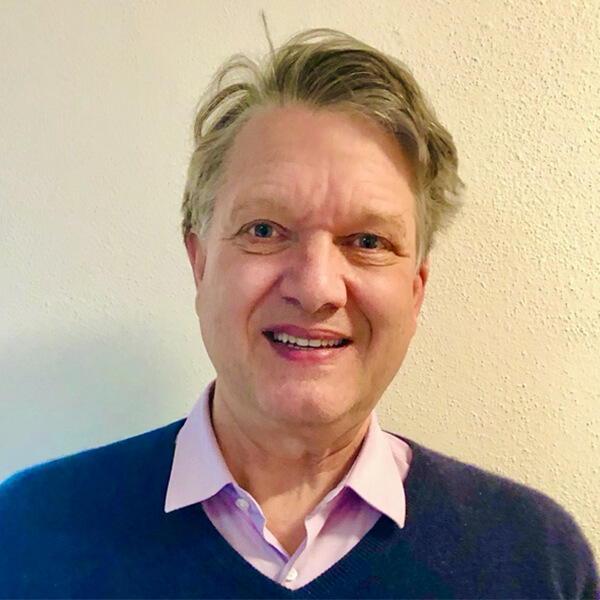
Christof Bosch
Christof Bosch grew up in Germany, but his father was connected to Ananda Mayee Ma, a spiritual teacher in Northern India. Christof met her in his teens and found himself on an inner journey that led him to the Diamond Approach 20 years later. In between, Christof’s search brought him to ecology and philosophy. After studying forestry, he worked as a consultant for soil ecology and for many years he run an organic farm in Bavaria, where he still lives. He is a teacher of the Diamond Approach since 2006.

This course is the fourth part of the 6-part online teaching series Lightness of Being. Each course in this series may be purchased individually, or you can register for the full series for a combined discount.
Join Us for the Full Series
for a $60 Discount
or Choose the Course
You Are Drawn To
$480
FAQ
What is the Ridhwan School?
“Ridhwan” is a Sufi word. It means “satisfied and satisfying.” Our school, home to more than 4,000 students across the globe, has the potential to both help you to be fulfilled and to help others be fulfilled. Students learn to ground, sensitize, recognize, and trust the inherent guidance of Being.
What is the Diamond Approach?
The Diamond Approach is the core teaching of the Ridhwan School, a spiritual path that approaches our ordinary experiences, emotions, and sensations in a friendly way of understanding. This radical acceptance of our situation allows something to come through that puts us in touch with our spirituality.
In the Diamond Approach, everything we experience is utilized as a doorway to our spiritual nature. Rather than negating or seeking to transcend parts of our humanness that are considered barriers to realization, we learn to approach each aspect of our physical, emotional, and mental experience with acceptance and open curiosity to discover its truth. We do meditation and other exercises, but the main method is Diamond Inquiry™: non-judgment of what we’re experiencing, which brings crisp clarity into one’s own truth.
What’s included in the program?
A recording of the online workshop where you’ll hear talks from Karen, participate in guided meditations and experiential exercises, and learn from other participants in the Q&A portions.
Are the sessions live or pre-recorded?
This is a recording of an online workshop.
Will you be mailing anything to me or is everything digital?
Once payment is received you will receive an email with your login details, then you are officially in! You will receive everything in your email inbox, including instructions on how to access the course. Please check your spam folder to locate the email that starts with ‘[LOB 2021].’
Do you offer financial assistance such as scholarships for online courses?
Yes! To apply for financial assistance for any of our courses, click here to complete a scholarship application.
What if I have questions?
We’re here to support you on your journey and help with any questions you may have about enrolling and accessing the course. For support please email daosupport@ridhwan.org. Be sure to add this address to your contact list so we don’t end up in your Junk/Spam/Promotions folder. But please check there just in case!
Is there a refund policy?
Are You Ready to Experience
The “Will to Be”?
To make online spiritual support more accessible to our global community, especially during the pandemic, we offer two additional “Pay It Forward” payment options in addition to the regular fee. For those who need help, we offer a reduced tuition option, and for those who are able to help, we offer the chance to add a “Pay It Forward” addition to regular tuition, with those additions going directly to provide scholarship opportunities for others.

Privacy Policy | Terms & Conditions
© Copyright Diamond Approach, Ridhwan School – All rights reserved.
